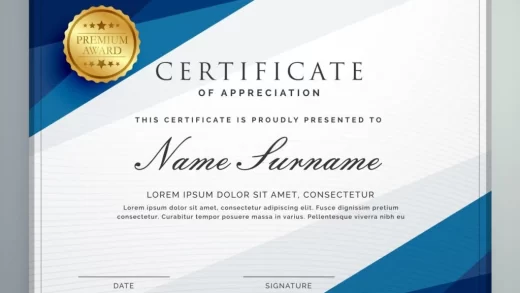What Is Comprehensive Car Insurance? Amazing Guide

What Is Comprehensive Car Insurance? Comprehensive car insurance is an extensive auto insurance coverage that provides protection against a wide range of risks and damages to your vehicle.
It goes beyond basic liability coverage by safeguarding your own vehicle from events such as theft, accidents, acts of nature (like fire, flood, or hail), vandalism, and falling objects.
While not legally required, comprehensive insurance is highly recommended for drivers who want comprehensive protection and peace of mind on the road.
It covers repairs or replacement costs for your vehicle, as well as offering additional benefits like towing assistance, rental car coverage, and protection for personal belongings.
What Is Comprehensive Car Insurance?
II. Coverage Details
Comprehensive car insurance offers a wide range of coverage to protect your vehicle from various risks and incidents. Here are the key coverage details:
A. Protection Against Theft
- Reimbursement For Stolen Vehicles
Comprehensive insurance provides coverage if your vehicle is stolen, offering reimbursement for its value or the cost of repairs if the vehicle is recovered but damaged.
- Coverage For Stolen Parts OR Accessories
It also covers the theft of valuable vehicle parts or accessories, such as tires, rims, stereo systems, or navigation units.
B. Coverage For Damages
- Accidents And Collisions
Comprehensive insurance covers damages resulting from accidents and collisions with other vehicles or objects, including repair costs or vehicle replacement if the damage is significant.
- Acts Of Nature
Comprehensive insurance protects against damages caused by natural disasters and unpredictable events, including:
a. Fire: Coverage for damages caused by fires, whether accidental or arson.
b. Flood: Protection against water damage caused by flooding.
c. Hail: Coverage for dents and other damages caused by hailstorms.
d. Windstorm: Protection against damages caused by strong winds, such as fallen trees or debris.
e. Earthquake: Coverage for damages resulting from earthquakes, such as structural damage or vehicle collapse.
- Vandalism And Malicious Acts
Comprehensive insurance covers damages caused by vandalism, such as intentional scratches, dents, or broken windows. It also includes damages resulting from malicious acts.
- Falling Objects
Coverage for damages caused by falling objects, such as tree branches, construction materials, or debris from other vehicles.
C. Additional Benefits
- Towing And Roadside Assistance
Comprehensive insurance often includes towing services if your vehicle breaks down or becomes inoperable. It also covers roadside assistance, such as flat tire changes, battery jump-starts, and fuel delivery.
- Rental Car Coverage
If your vehicle is undergoing repairs due to covered damages, comprehensive insurance may provide coverage for a rental car, ensuring you can continue with your daily activities.
- Glass Repair And Replacement
Comprehensive insurance covers the repair or replacement of damaged glass, such as windshields, windows, and sunroofs.
- Personal Belongings Coverage
Some comprehensive policies may offer coverage for personal belongings stolen or damaged from your vehicle, such as laptops, smartphones, or other valuable items.
- Uninsured OR Underinsured Motorist Coverage
In certain cases, comprehensive insurance can provide coverage if you’re involved in an accident with an uninsured or underinsured driver who may not have enough insurance to cover the damages.
It’s important to note that specific coverage details, limits, and exclusions may vary depending on the insurance provider and policy terms.
Reviewing your policy documentation or consulting with an insurance professional will provide you with accurate information tailored to your specific needs.
Recommended: What Does Full Coverage Car Insurance Cover? Complete Guide
Exclusions And Limitations
While comprehensive car insurance provides extensive coverage, it’s important to be aware of the exclusions and limitations that may apply.
Here are some typical exclusions and restrictions to think about:
1. Deductibles
Comprehensive insurance often comes with a deductible, which is the amount you must pay out of pocket before the insurance coverage kicks in.
Higher deductibles can result in lower premiums but may require you to bear a larger portion of the repair or replacement costs.
2. Vehicle Value Limits
Insurance policies may have limits on the maximum value of the vehicle they will cover.
If your vehicle exceeds this limit, you may need additional coverage or a specialized policy.
3. Age And Mileage Restrictions
Some insurers may impose restrictions based on the age and mileage of the vehicle.
For example, they may not provide comprehensive coverage for vehicles that are too old or have high mileage.
4. Excluded Drivers
Insurance policies may exclude certain drivers from coverage, such as inexperienced or high-risk drivers.
It’s important to review the policy to understand who is covered and who is excluded.
5. Non-Covered Items OR Modifications
Certain items or modifications may not be covered by comprehensive insurance.
For example, expensive aftermarket additions like custom rims or sound systems may require additional coverage or a separate policy.
6. Wear And Tear
Comprehensive insurance typically covers sudden and accidental damages rather than regular wear and tear or mechanical breakdowns.
Routine maintenance and repairs are generally the responsibility of the vehicle owner.
7. Intentional Acts
Damage caused intentionally, such as purposeful vehicle destruction, may not be covered by comprehensive insurance.
8. Gradual Damages
Comprehensive insurance usually covers sudden and immediate damages. Gradual damages, such as corrosion or rust over time, may not be covered.
It’s essential to carefully review your insurance policy documents and understand the exclusions and limitations specific to your coverage.
If you have any questions or concerns, it’s recommended to consult with your insurance provider or an insurance professional to clarify the terms and ensure you have the appropriate coverage for your needs.
Recommended: Affordable Workers Comp Insurance | Complete Guide
Premiums And Factors Affecting Costs
When it comes to comprehensive car insurance, the premiums you pay for coverage are influenced by various factors.
Understanding these factors can help you estimate the cost of your insurance and make informed decisions. Here are some important things to think about:
A. Factors Influencing Premium Rates
- Vehicle Make, Model, And Age
type of vehicle you own plays a significant role in determining your premium.
Factors such as the make, model, year, and value of the vehicle can affect the cost of repairs or replacement, which impacts the insurance premium.
- Driver’s Age And Driving History
Insurance providers consider the age and driving experience of the policyholder.
Younger or inexperienced drivers generally face higher premiums due to higher perceived risk.
Additionally, a clean driving record with no accidents or traffic violations can help lower premiums.
- Coverage Limits And Deductibles
The coverage limits you choose and the deductible amount you’re willing to pay affect the premium.
- Location And Usage Patterns
Your location and how you use your vehicle can impact the premium.
Factors such as the frequency of accidents and thefts in your area, as well as the daily mileage you cover, can influence the cost of insurance.
B. Comparing Quotes And Insurers
To make an informed decision when purchasing comprehensive car insurance, it’s important to compare quotes from different insurers and evaluate the coverage and cost trade-offs.
Here are the steps you can follow:
1. Researching Reputable Insurance Providers
Conduct thorough research to identify reputable insurance companies.
Look for insurers with a strong financial standing, positive customer reviews, and a good reputation for claim settlement.
This can be done by checking online reviews, consulting consumer reports, or seeking recommendations from friends, family, or trusted professionals.
2. Obtaining Multiple Quotes
Reach out to multiple insurance providers to obtain quotes for comprehensive car insurance.
Most insurers provide online quote tools or have customer service representatives who can assist you in obtaining personalized quotes.
Provide accurate information about your vehicle, driving history, and coverage requirements to get accurate quotes.
3. Evaluating Coverage And Cost Trade-Offs
Once you have multiple quotes in hand, carefully review and compare the coverage details, exclusions, deductibles, and additional benefits offered by each insurer.
Consider the premium amount in relation to the coverage provided.
Avoid solely focusing on the lowest premium; instead, evaluate the overall value and suitability of the coverage for your specific needs.
Factors to consider when evaluating coverage and cost trade-offs include:
- Coverage limits: Ensure the coverage limits are sufficient to protect your vehicle adequately.
- Deductibles: Assess the deductible amount and its impact on your out-of-pocket expenses in the event of a claim.
- Additional benefits: Compare the extra features and benefits offered by each policy, such as roadside assistance, rental car coverage, or personal belongings protection.
- Exclusions and limitations: Understand the specific exclusions and limitations of each policy to determine if they align with your requirements.
By researching, obtaining multiple quotes, and evaluating coverage and cost trade-offs, you can make an informed decision that provides the right balance between adequate coverage and affordability.
Remember to review your policy regularly and reassess your coverage needs to ensure it remains suitable as circumstances change.
Conclusion
Comprehensive car insurance offers extensive coverage and protection for your vehicle beyond basic liability insurance.
It safeguards against theft, damages from accidents, acts of nature, vandalism, and falling objects.
Additionally, it provides valuable benefits like towing and roadside assistance, rental car coverage, glass repair and replacement, personal belongings coverage, and uninsured or underinsured motorist coverage.
When seeking comprehensive insurance, it is crucial to research reputable insurers, obtain multiple quotes, and carefully evaluate coverage and cost trade-offs.
By doing so, you can secure appropriate coverage that meets your needs while considering factors such as premiums, deductibles, coverage limits, and additional benefits. You can visit Globlar.com for news and more update!
Regularly reviewing your policy and consulting with insurance professionals can help ensure you have comprehensive protection for your vehicle.














